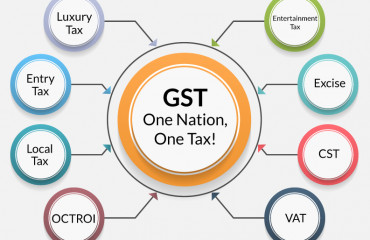
NEW DELHI: Federal indirect tax body, the Goods and Services Tax (GST) Council, on Saturday decided to raise the monetary threshold for launching prosecutions under GST law to ₹2 crore from ₹1 crore now, and also decided to de-criminalise three offences in addition to issuing several clarifications to bring certainty to businesses, especially in automobile and insurance sectors.
NEW DELHI: Federal indirect tax body, the Goods and Services Tax (GST) Council, on Saturday decided to raise the monetary threshold for launching prosecutions under GST law to ₹2 crore from ₹1 crore now, and also decided to de-criminalise three offences in addition to issuing several clarifications to bring certainty to businesses, especially in automobile and insurance sectors.
Finance minister Nirmala Sitharaman told reporters at a briefing after the meeting that the Council had about 15 items on the agenda but eight were taken up on Saturday and the remaining seven, including a ministerial panel's recommendations on setting up GST appellate tribunal would be taken up at the next meeting, which may be an in-person meeting.
The report of a ministerial panel on capacity-based taxation for tobacco and gutka, which was also not taken up on today, is expected to figure in the next meeting.
"In this Council meeting, there has not been any tax increase on any item. Everything that has been done is to issue clarifications where ambiguity of interpretation prevailed," Sitharaman explained.
Revenue secretary Sanjay Malhotra, who was present on the occasion, said that the Council's move to decriminalise three offences was a "path-breaking recommendation." These offences are obstruction or preventing any officer in discharge of his duties, deliberate tempering of material evidence and failure to supply information. The raised monetary threshold for initiating prosecution at ₹2 crore, however, does not apply to the offence of issuing invoices without sale of goods or services.
The Council also decided to lower the compounding amount from the present range of 50% to 150% of the tax amount to the range of 25% to 100% in a bid to improve ease of doing business.
The Council decided to lower the tax rate on ethyl alcohol supplied to refineries for blending with petrol from 18% to 5%, husk of pulses from 5% to zero and decided to include Mentha arvensis or mint under reverse charge mechanism meant to improve tax compliance.
The Council also made several clarifications to bring more certainty on taxation and to ensure that the same practice is followed in all states.
As per this, GST compensation cess of 22% will be applicable to motor vehicles fulfilling all four conditions-- namely, it is popularly known as SUV, has engine capacity exceeding 1500 cc, length exceeding 4000 mm and a ground clearance of 170 mm or above. The clarification is brought to ensure that the same practice is followed in all the states.
The Council also clarified that no GST is payable where a residential dwelling is rented to a GST registered person if it is rented in her personal capacity for use as her own residence and on her own account and not on account of her business. Also, incentive paid to banks by the Central government under the scheme for promotion of RuPay debit cards and low value BHIM-UPI transactions are in the nature of subsidy and therefore not taxable.
It has also been clarified that 'no claim bonus' offered by the insurance companies to an insured is an admissible deduction for valuation of insurance service and does not attract GST, Malhotra explained.
Sitharaman said that suggestions for inclusion of MUVs also came up during discussions. "Even as we brought in this clarification (about SUVs), there was a request to bring in or add MUVs (multi-utility vehicles), which are now already in the market…and what has been agreed upon by the Council is that this clarification goes ahead. But if there is anything else that needs to be added to this 22% rate, the fitment committee will look into it," the minister said. "This clarification is not new tax. It is more to say what defines that commodity, which is under taxation as SUV," the minister said.
